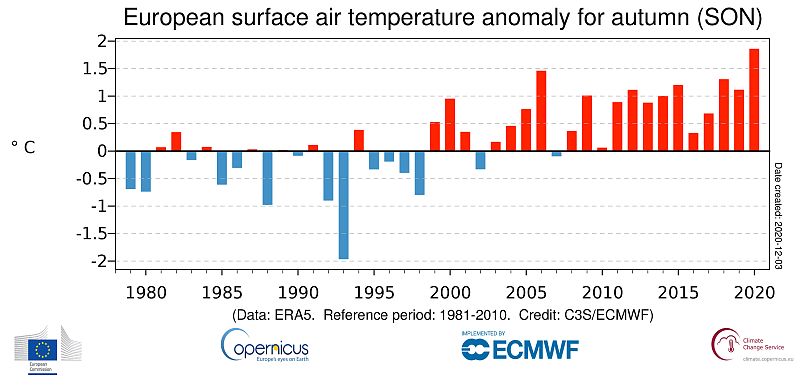Sweden and Finland broke national records while Norway had its joint warmest November since records began in 1900.
Europe's average autumn temperatures this year have been the highest since records began, according to the European Commission.
 ADVERTISEMENT
ADVERTISEMENT
 ADVERTISEMENT
ADVERTISEMENT
The period from September to November was 1.9℃ hotter than the standard 30-year reference period from 1981 to 2010, and 0.4 ℃ higher than the previous warmest autumn in 2006, according to data released by the EU's Copernicus Climate Change Service.
It said temperatures were far higher over the Alps and northern Europe.
Sweden and Finland broke national records while Norway had its joint warmest November since records began in 1900.
Globally, November was the hottest on record, it added.
It comes as the World Meteorological Organisation (WMO) warned that the past decade will be the hottest in human history.
The records come despite La Niña phenomenon, which typically provides a cooling effect on global temperatures.
“Globally, November was an exceptionally warm month compared to other Novembers, and temperatures in the Arctic and northern Siberia remained consistently high, with sea ice at its second-lowest extent," said Carlo Buontempo, director of the Copernicus Climate Change Service at ECMWF.
"This trend is concerning and highlights the importance of comprehensive monitoring of the Arctic, as it is warming faster than the rest of the world.”
Click on the video player above as Seana Davis speaks with Samantha Burgess, Deputy Director of the Copernicus Climate Change Service.











